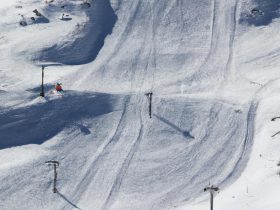In an age where information flows constantly, the quest for sharper memory and unwavering concentration has become more crucial than ever. Imagine a secret weapon that not only enhances your cognitive abilities but also invigorates your overall well-being: exercise. As the heart pumps and the muscles engage, a fascinating transformation unfolds in the brain. Research has unveiled a profound connection between physical activity and cognitive function, revealing that regular exercise can lead to improved memory, heightened concentration, and a more agile mind. In this article, we will explore the intricate ways in which movement enhances our mental faculties, providing practical insights to harness the power of exercise in our learning journeys. Whether you are a student striving for academic excellence or a professional yearning for greater focus, understanding this relationship between body and brain could be the key to unlocking your full intellectual potential. Step aside, coffee and late-night cram sessions—it’s time to get moving!
Unleashing Neuroplasticity: The Connection Between Physical Activity and Cognitive Enhancement
Engaging in regular physical activity is not just beneficial for your body; it has profound implications for your brain as well. Exercise triggers a series of biological processes that can lead to enhanced cognitive function and memory retention. When you get moving, your body releases neurotransmitters, such as dopamine and serotonin, which play vital roles in improving mood and focus. Physical activity also encourages the growth of new neural connections in the brain, ultimately boosting neuroplasticity. This flexibility allows your brain to adapt to new information and experiences more efficiently. Here are some key ways that movement can amplify mental capabilities:
- Increased Blood Flow: Exercise enhances cardiovascular health, ensuring that oxygen and nutrients reach your brain more effectively.
- Enhanced Mood: Regular workouts can decrease anxiety and depression, creating a better mental environment for learning and concentration.
- Improved Memory: Activities like aerobic exercise elevate brain-derived neurotrophic factor (BDNF), a protein crucial for memory formation.
- Sharper Focus: Physical workouts can improve attention span and task-switching abilities, essential components of cognitive performance.
Incorporating varied activities—such as aerobic exercises, strength training, and even mindful practices like yoga—into your routine can create a multi-faceted approach to learning and memory enhancement. Here’s a simple comparison of different types of exercise and their cognitive benefits:
| Type of Exercise | Cognitive Benefit |
|---|---|
| Aerobic | Improves attention and memory recall. |
| Strength Training | Enhances executive functions and problem-solving skills. |
| Yoga | Increases mindfulness and stress resilience. |
Tailoring Your Exercise Routine: Strategies for Maximizing Memory and Focus Through Movement
To harness the brain-boosting benefits of exercise, it’s essential to tailor your movement routine to fit your personal goals and preferences. Consider integrating a mix of the following activities to enhance cognitive function:
- Aerobic exercises like running, cycling, or swimming to increase blood flow to the brain.
- Strength training with weights or resistance bands to improve overall brain health through increased muscle mass.
- Mind-body workouts such as yoga or tai chi to enhance concentration and reduce stress levels.
- Short bursts of high-intensity interval training (HIIT) to stimulate neurogenesis and improve memory retention.
Combine these activities throughout the week to maintain variety and engagement. A simple weekly schedule could look like this:
| Day | Activity |
|---|---|
| Monday | Aerobic exercise (30 mins) |
| Wednesday | Strength training (30 mins) |
| Friday | Yoga or Tai Chi (45 mins) |
| Saturday | HIIT session (20 mins) |
This structured yet flexible approach not only ensures you are moving consistently but also allows your brain to thrive through diverse forms of physical activity.
In Summary
As we draw this exploration of the intricate relationship between exercise and cognitive function to a close, it becomes clear that the pursuit of knowledge is as much a physical endeavor as it is a mental one. Our brain, much like any other muscle, thrives on movement, invigorating our capacity to learn, remember, and concentrate. By incorporating regular physical activity into our daily routines, we unlock the door to enhanced memory and sharper focus—tools essential for lifelong learning.
Whether you’re taking a brisk walk in the fresh air, engaging in a quick workout, or indulging in a dance session in your living room, remember that these simple acts of movement hold the power to transform not just your body, but also your mind. As you venture forth, consider the steps you can take to harmonize your physical and mental vitality. The journey to augmenting brain power is not just about exercise; it’s a commitment to nurturing a thriving, engaged, and curious mind. Embrace this synergy, and let it guide you toward a brighter, more enlightened future.











Leave a Reply